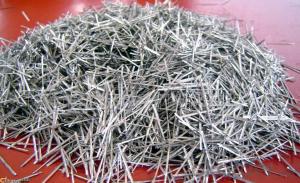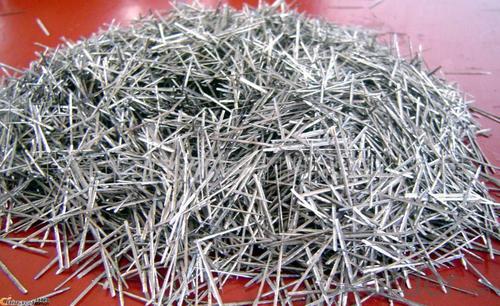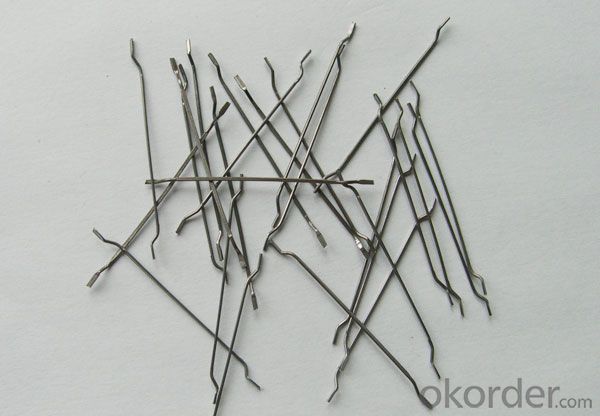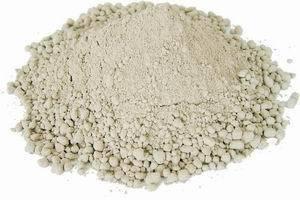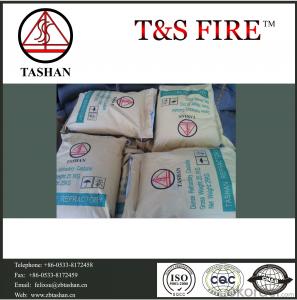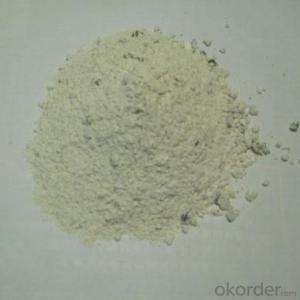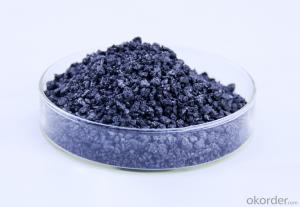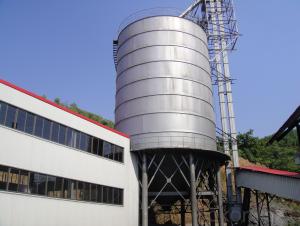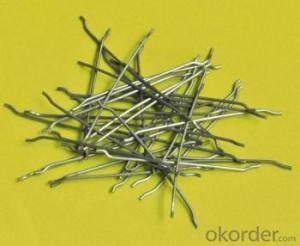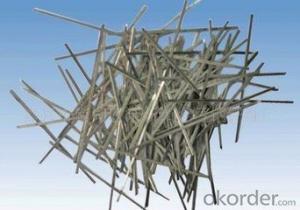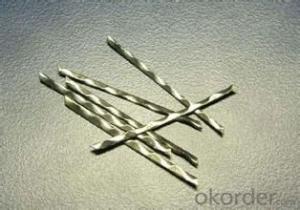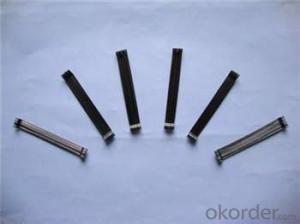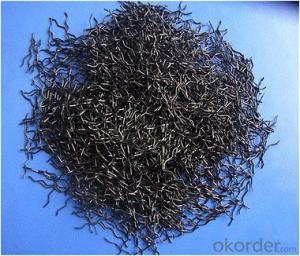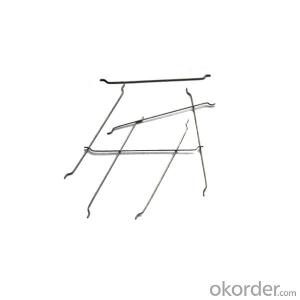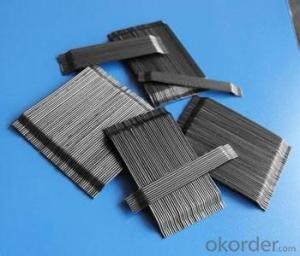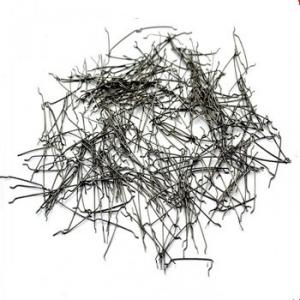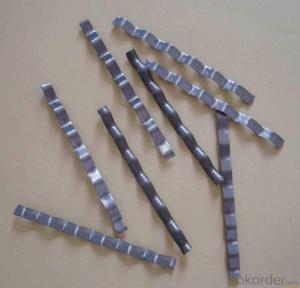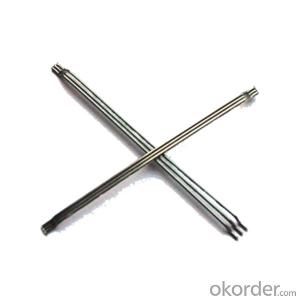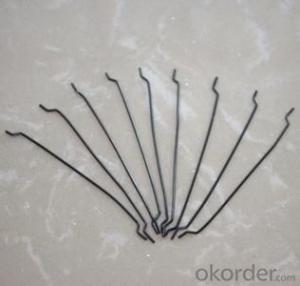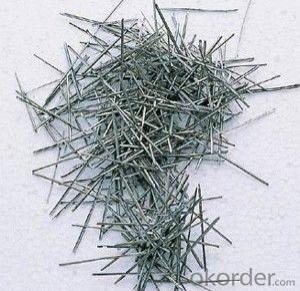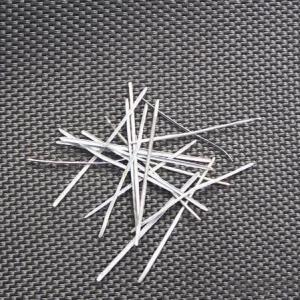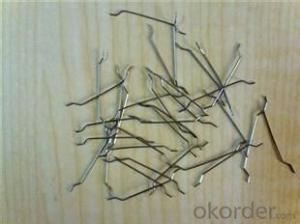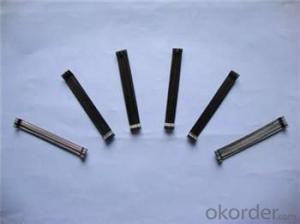Melt Extract Stainless Steel Fiber for High Tenacity Polypropylene Fiber in Concrete Steel Fiber Construction Use
- Loading Port:
- Tianjin
- Payment Terms:
- TT OR LC
- Min Order Qty:
- 5 kg
- Supply Capability:
- 250000 kg/month
OKorder Service Pledge
OKorder Financial Service
You Might Also Like
Quick Details
Place of Origin: Shandong, China (Mainland), Shandong, China (Mainland)
material: steel wire
type: wavy steel fiber
shape: corrugated flat fiber
usage: concrete reinforcement
appearance: clear and bright
Product features
steel fiber are for concrete construction, greatly improves concrete bonding and tensile strength .
a new type of construction materials used for concrete reinforcement. It is used to take the place of steel fibre to reinforce the cement concrete in construction. it has the advantage of easy dispersing, crack resistance, and easy for construction. And there is no need for any special maintenance.
Specifications
| The Specification of Hooker Ends Steel Fiber | ||||
| TYPE | Diameter(mm) | Length(mm) | Length/Diameter | Tensile strength |
| LB-60/60 | 1.0 | 60 | 60 | >=1000Mpa |
| LB-50/50 | 1.0 | 50 | 50 | >=1000Mpa |
| LB-65/60 | 0.9 | 60 | 65 | >=1000Mpa |
| LB-55/50 | 0.9 | 50 | 55 | >=1000Mpa |
| LB-80/60 | 0.75 | 60 | 80 | >=1000Mpa |
| LB-45/35 | 0.75 | 35 | 45 | >=1000Mpa |
| LB-55/30 | 0.55 | 30 | 55 | >=1000Mpa |
| LB-60/30 | 0.5 | 30 | 60 | >=1000Mpa |
| LB-50/25 | 0.5 | 25 | 50 | >=1000Mpa |
| LB-60/25 | 0.4 | 25 | 60 | >=1000Mpa |
Picture
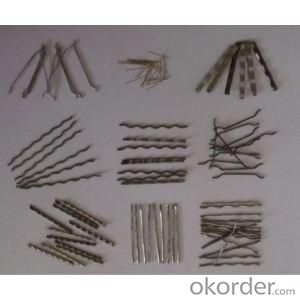
steel fiber for concrete reinforcement
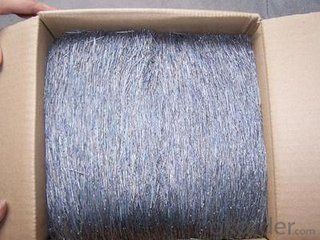
steel fiber
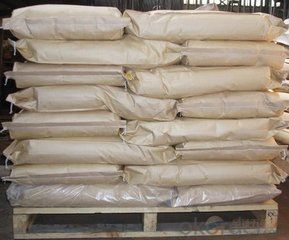
FAQ
we can produce any type steel fiber and of course we can make production according to your requirement
we have specilize in this field for almost 10 years ,with good quality and competitive price
- Q: Can melt extract stainless steel fiber be used in decorative concrete applications?
- Yes, melt extract stainless steel fiber can be used in decorative concrete applications. This type of fiber is specifically designed to enhance the strength, durability, and aesthetic appeal of concrete surfaces. The stainless steel fibers are mixed into the concrete mixture, providing reinforcement and preventing cracking and shrinkage. Additionally, the stainless steel fibers can create a unique visual effect, adding a metallic shine or texture to the concrete surface. This makes it an ideal choice for decorative concrete applications where both strength and aesthetics are important, such as countertops, flooring, and architectural elements.
- Q: Can melt extract stainless steel fiber improve the resistance of concrete to impact loads?
- Indeed, the utilization of melt extract stainless steel fiber has the potential to enhance the resistance of concrete to impact loads. Stainless steel fibers are renowned for their robust tensile strength, durability, and ability to augment the mechanical properties of concrete. Incorporating stainless steel fibers into concrete mixtures aids in the even distribution of applied loads and impedes crack propagation, thereby fortifying the concrete's resistance to impact loads. These fibers function as reinforcement within the concrete matrix, effectively bolstering its impact resistance and overall toughness. Moreover, melt extract stainless steel fibers possess a high melting point, enabling them to retain their structural integrity even in extreme temperatures or rapid heating scenarios. This characteristic further contributes to the heightened impact resistance of concrete. Ultimately, the inclusion of melt extract stainless steel fibers can significantly elevate the concrete's capacity to withstand impact loads and optimize its performance in applications where impact resistance is paramount, such as industrial floors, pavements, and heavily trafficked areas.
- Q: Can melt extract stainless steel fiber be used in shotcrete tunnel boring machine applications?
- Yes, melt extract stainless steel fiber can be used in shotcrete tunnel boring machine applications. Shotcrete is a method of applying concrete or mortar using a high-pressure hose, and the addition of stainless steel fiber can enhance the mechanical properties and durability of the shotcrete. The melt extract stainless steel fiber is made from stainless steel through a melting and extraction process, resulting in a high-strength fiber with excellent corrosion resistance. These properties make it suitable for use in tunnel boring machine applications where the shotcrete needs to withstand high pressures, vibrations, and potential exposure to moisture or chemicals. Additionally, the stainless steel fiber can improve the flexural and tensile strength of the shotcrete, reducing the risk of cracking and enhancing the overall stability and performance of the tunnel structure.
- Q: What is the effect of melt extract stainless steel fiber on the deflection of concrete beams?
- The deflection of concrete beams can be significantly affected by the inclusion of melt extract stainless steel fiber. By introducing stainless steel fibers into the concrete mix, the overall toughness and ductility of the material are enhanced, leading to improved resistance against cracking and better structural performance. The incorporation of melt extract stainless steel fibers serves to evenly distribute the load across the concrete matrix, thereby reducing the concentration of stress at specific points. Consequently, the deflection is diminished as the fibers reinforce the concrete and prevent excessive bending under load. Furthermore, the inclusion of stainless steel fibers improves the bond between the concrete matrix and the reinforcing steel bars, resulting in enhanced composite action. This, in turn, contributes to the reduction of deflection in concrete beams. Additionally, the thermal stability of stainless steel fibers allows them to retain their integrity even at elevated temperatures. As a result, they are particularly effective in reinforcing concrete beams subjected to fire or high temperatures, as they minimize the effects of thermal expansion and contraction. In conclusion, the addition of melt extract stainless steel fibers to concrete beams has a positive impact on their deflection. These fibers enhance overall toughness, distribute load evenly, strengthen the bond with reinforcing steel bars, and provide thermal stability. Collectively, these factors lead to reduced deflection and improved structural performance of concrete beams.
- Q: Does melt extract stainless steel fiber improve the resistance to chloride penetration in concrete?
- Yes, melt extract stainless steel fiber can improve the resistance to chloride penetration in concrete. Stainless steel fibers are known for their corrosion resistance, which makes them highly effective in protecting concrete structures from chloride attacks. Chloride ions can penetrate concrete and corrode the reinforcement, leading to structural deterioration. However, when stainless steel fibers are added to the concrete mix, they create a network that enhances the overall durability and resistance to chloride penetration. The fibers act as a barrier, hindering the movement of chloride ions and reducing their ability to reach the reinforcement. This results in improved resistance to chloride-induced corrosion in concrete, ultimately extending the service life of the structure.
- Q: What is the recommended fiber volume fraction for melt extract stainless steel fiber in concrete?
- The recommended fiber volume fraction for melt extract stainless steel fiber in concrete can vary depending on the specific application and desired performance characteristics. However, generally, a fiber volume fraction of around 1-2% is commonly recommended. This range of volume fraction provides a good balance between enhancing the tensile strength and crack resistance of the concrete, while still allowing for proper workability during mixing and placing of the concrete. It is important to consult the specific guidelines and recommendations provided by the manufacturer of the stainless steel fibers and consider the requirements of the project to determine the optimal fiber volume fraction for the concrete application.
- Q: Can melt extract stainless steel fiber be used in self-compacting concrete applications?
- Yes, melt extract stainless steel fiber can be used in self-compacting concrete (SCC) applications. SCC is known for its ability to flow and fill complex and congested reinforcement areas without the need for external vibration. The addition of stainless steel fibers can enhance the mechanical properties of SCC, such as flexural and impact strength, crack resistance, and durability. Melt extract stainless steel fibers have excellent tensile strength and corrosion resistance, making them suitable for use in SCC. These fibers are typically produced by melting stainless steel and then rapidly extracting it into fine filaments. These filaments are then bundled together to form the stainless steel fibers. By incorporating melt extract stainless steel fibers into SCC, the concrete's ductility and toughness can be improved. This is particularly beneficial in applications where high structural performance is required, such as in bridge decks, tunnels, and high-rise buildings. The fibers help to prevent crack propagation and enhance the overall durability of the concrete. Additionally, melt extract stainless steel fibers can also improve the fire resistance of SCC. Stainless steel has a high melting point and retains its strength even at elevated temperatures, making it an ideal reinforcement material in fire-prone areas. However, it is important to note that the dosage and distribution of stainless steel fibers should be carefully considered to ensure optimal performance. The fiber length, aspect ratio, and volume fraction should be selected based on the specific requirements of the SCC application. In conclusion, melt extract stainless steel fiber can indeed be used in self-compacting concrete applications. Their addition can enhance the mechanical properties, durability, and fire resistance of SCC, making it a suitable choice for a wide range of construction projects.
- Q: Can melt extract stainless steel fiber be used in concrete repair applications?
- Certainly! The utilization of melt extract stainless steel fiber is applicable in concrete repair applications. To enhance the mechanical properties and durability of concrete mixtures, it is customary to incorporate stainless steel fibers. The manufacturing process for melt extract stainless steel fibers involves a specialized technique that guarantees both high tensile strength and resistance to corrosion. These fibers effectively bolster the resistance to cracking, impact, and fatigue loading in repaired concrete structures. Moreover, they contribute to the improved bonding between the repaired concrete and the pre-existing concrete surface, thereby augmenting the overall integrity of the repaired area.
- Q: Can melt extract stainless steel fiber be used in high-rise or tall buildings?
- Yes, melt extract stainless steel fiber can be used in high-rise or tall buildings. This type of fiber is known for its high strength and durability, making it suitable for use in structures that require a high level of structural integrity. Additionally, stainless steel fibers have excellent resistance to corrosion, fire, and extreme temperatures, which are important factors to consider in high-rise buildings. The use of melt extract stainless steel fiber can enhance the overall strength and stability of the building, ensuring its structural integrity and safety.
- Q: Can melt extract stainless steel fiber be used in the construction of offshore platforms?
- Melt extract stainless steel fiber is indeed a viable option for the construction of offshore platforms. This material possesses exceptional strength and outstanding resistance to corrosion, which makes it highly suitable for marine environments like offshore platforms. By incorporating it into concrete reinforcement, the structural integrity and durability of the platform can be greatly enhanced. The stainless steel fiber's capacity to withstand harsh conditions, such as exposure to saltwater, ensures the long-lasting and robust nature of the offshore platform. Moreover, utilizing stainless steel fiber can aid in minimizing the expenses related to maintenance and repair caused by corrosion damage, thus establishing it as an ideal choice for constructing offshore platforms.
Send your message to us
Melt Extract Stainless Steel Fiber for High Tenacity Polypropylene Fiber in Concrete Steel Fiber Construction Use
- Loading Port:
- Tianjin
- Payment Terms:
- TT OR LC
- Min Order Qty:
- 5 kg
- Supply Capability:
- 250000 kg/month
OKorder Service Pledge
OKorder Financial Service
Similar products
Hot products
Hot Searches
Related keywords
